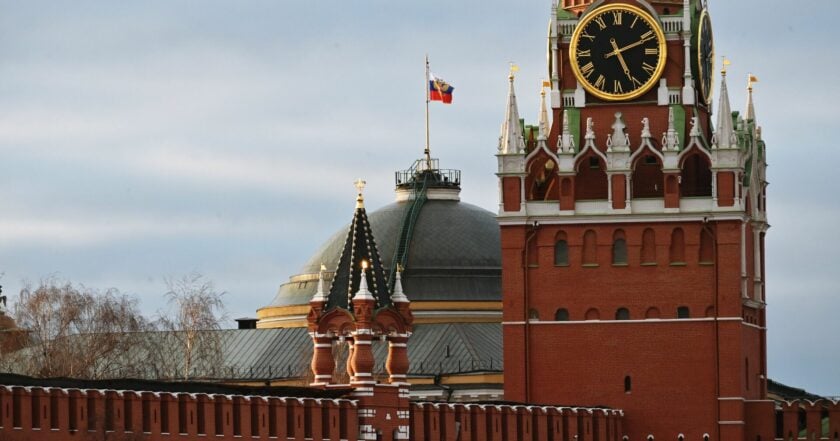British intelligence reveals sources of funds fueling Russia's military build-up

Photo: Ria News
The projected income goal for Russia this year is unlikely to be met, as stated in the budget plan. The government may need to explore other options to cover the planned expenses.
The British Ministry of Defense reported that on Twitter.
As noted in the summary, the Russian government has ambitious plans to increase spending by 26% in 2024.
This is based on optimistic expectations of a 22% increase in revenues, with oil and gas revenues expected to increase by almost 25%.
Latest Defence Intelligence update on the situation in Ukraine – 05 February 2024.
Find out more about Defence Intelligence's use of language: https://t.co/J67zk0ezE3 #StandWithUkraine 🇺🇦 pic.twitter.com/e5TKS4zPOX
— Ministry of Defence 🇬🇧 (@DefenceHQ) February 5, 2024
However, according to British intelligence, the Russian government will have to cut its deductions to the National Welfare Fund and increase domestic taxes and debt to finance the planned spending.
"These policies will almost certainly have adverse effects on the economy in the medium to long term, maintaining inflationary pressures or constraining future economic growth. The National Welfare Fund is ostensibly intended for the long-term economic well-being of the Russian people. Still, it is increasingly being used to finance the invasion of Ukraine, while the value of its assets fell by 10% in 2023," the British Ministry of Defense notes.
For reference:
In 2023, Moscow spent more than 100 billion dollars on military purposes, or almost a third of its total expenditures.
10.775 trillion rubles (121 billion dollars at the current exchange rate of the Central Bank of the Russian Federation) will be spent under the heading "national defense" for the year – 70% more than in 2023. Another 3.338 trillion rubles, according to the budget law, will be spent by the government under the article "National Security," which includes the budgets of the Ministry of Internal Affairs, the Russian Guard, special services, and the Federal Penitentiary Service system. Thus, almost 40% of the budget will be spent on power structures.
The funding for state propaganda will continue to reach record amounts, with state-run media receiving 121.3 billion rubles from the budget, only slightly lower than this year's 122 billion. Expenditures allocated for "Culture and Cinematography," which includes funding for creating pro-war films, will increase by 11%, totaling 234 billion rubles.
Expenditures under the national project "Health Care" will be cut by 10%, from 321.3 to 289.9 billion rubles.
The costs of supporting the economy will decrease from 4.125 to 3.889 trillion rubles. Funding for education and medicine – 1.6 trillion rubles each – will be frozen, and in real terms – considering inflation – will decrease.
Commenting on the document, the head of the Ministry of Finance, Anton Siluanov, said: "Everything for the front, everything for victory." He urged people not to worry that the treasury would not have enough money.
"But what is planned will be enough. A normal, healthy budget," the minister said.
What is known about the oil revenues of the Russian Federation
According to the International Energy Agency, due to the general decrease in world oil prices, the weighted average price of Russian oil fell to 80.66 dollars per barrel in October. However, it is still well above the $60 limit set by the Big Seven.
It will be recalled that, as reported in the Financial Times, Russia managed to avoid the "Big Seven" restrictions on most of its oil exports. Such a change in trade flows will help increase the Kremlin's income as oil prices rise to $100 per barrel.
In addition, in October, Moscow received 18.34 billion dollars from the export of crude oil and petroleum products. Russia's monthly income from oil sales abroad remains near its highest level since October 2022.
It should be noted that the Stockholm International Peace Research Institute (SIPRI) estimated that Russia's military expenditure budget for 2023 is about 6.6 trillion rubles ($85.8 billion). This corresponds to approximately 4.4% of Russia's GDP compared to 3.6% in 2021 before the invasion of Ukraine.
As Rubryka wrote, for the first time, the United States of America introduced sanctions in response to circumventing the price ceiling for oil from the Russian Federation.






















































